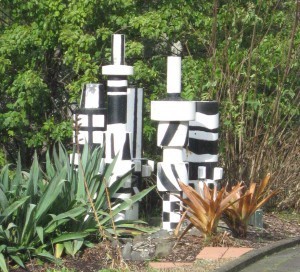Helen Lowe's Blog, page 289
August 6, 2011
I "Heart" Port Waikato
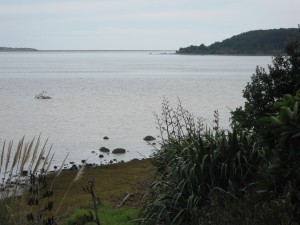
Port Waikato
Yesterday I posted a few photos of Port Waikato on my blog under the heading "Cool Places", and the river mouth and the beach are very cool. But the community there are even cooler. The Port is a small place, with a population of approximately 400, but after the February 22nd earthquake in Christchurch they got together and organised themselves—under the umbrella "Lyttelton, We Care" —to fundraise for Lyttelton—a port community helping a port community.
And they've raised $10,000.
Very impressive, huh, for a small community of 400?
To me, this is the sort of community spirit, not just local community but New Zealand community, that has been the the only silver lining of the post earthquake situation. And on Friday evening I got to share wine and pizza with the "Lyttelton, We Care" committee, to talk a little bit about the current situation in Christchurch, and have a great time with a great bunch of people who have put their hands up to "heart" Lyttelton—and given both time and money to achieve a fantastic result.
I also shared several of my poems from the new Earthquake Witness sequence: Indifferent Planet; All Over; The Sparrows, and Allow Me To Say … If you would like to read these or other poems in the Earthquake Witness sequence you can find them here.
August 5, 2011
Cool Places
Over the last few weeks I've been having a bit of a holiday and one good thing about holidays is that sometimes you get to go to cool places. Like Port Waikato …
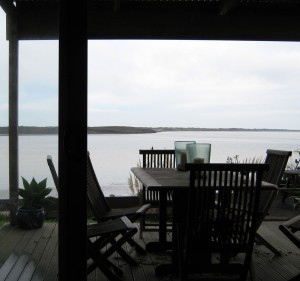
From the porch ...
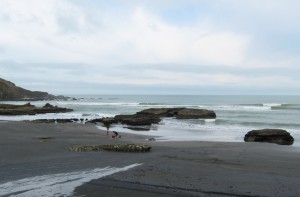
On the beach ...
And the Hamilton Gardens with their wonderful themed features such as the Russian belltower and the Japanese Garden
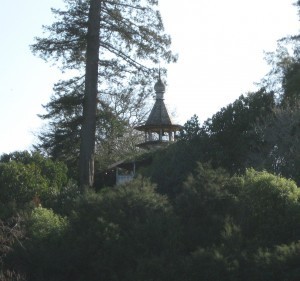
The Russian belltower

View into the Japanese Garden
and the delight of artwork around every curve in the path …
So what about you? Do you have a favourite cool place, one that you have visited lately—or is there somewhere you would really like to visit, given the chance?
August 4, 2011
A Peek Inside Tales for Canterbury: "Juggling Silver" by Juliet Marillier
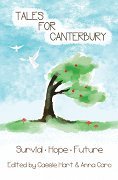 It's time for another "peek inside" Tales for Canterbury, this time with a look at Juliet Marillier's Juggling Silver, a beautiful short story that mixes a sense of folk magic with historical reality in another selection from the "Hope" segment of the anthology. One of the many elements in this short story that I really loved was the sesne of connection between age and youth, as well as the human connection to place and the ability of objects to reinforce that bond.
It's time for another "peek inside" Tales for Canterbury, this time with a look at Juliet Marillier's Juggling Silver, a beautiful short story that mixes a sense of folk magic with historical reality in another selection from the "Hope" segment of the anthology. One of the many elements in this short story that I really loved was the sesne of connection between age and youth, as well as the human connection to place and the ability of objects to reinforce that bond.
Juggling Silver
by Juliet Marillier
Grandmother kept her silver plates in a row on a high shelf. They sat there looking down at us like three round eyes. Every day she took them off the shelf and polished them with a soft, red cloth, and then she put them carefully back. If we climbed up, we could see our faces in them. Ulli climbed up a lot.
"Ulli, Ulli, what are we going to do with you?" Grandmother would say. "Eight years old and never out of trouble! Eight years old and still babbling baby talk! Get down off there before you break something!"
The plates were very old and very valuable. They had belonged to Grandmother's great-great-grandmother. On the rims of them were silver berries and leaves, owls and wolves, whales and dolphins. Grandmother called them the tree plate, the eye plate and the sea plate. Sometimes she let me hold them.
"Careful, Sami! That's treasure you have in your hands!" She never let Ulli hold them.
Ulli was different.The other boys and girls his age ran around and played with a ball. They hunted for shells and went swimming in the rock pools. They helped their mothers to salt fish and gave their fathers a hand with tarring boats or untangling nets. I could talk to them and they'd understand me. Not Ulli. My little brother wasn't safe on the beach by himself. He'd just walk into the water and keep on going. I'd waded in and fished him out hundreds of times. Ulli didn't understand what people told him. And he couldn't talk, not the way other folk talked. All he would say was a sort of rhyme, over and over, in words that didn't make any sense: tipi api sipi oh, tipi api sipi oh. He'd sit on the bottom step outside Grandmother's hut and play with a little pile of round, black stones, throwing them up in the air and catching them one, two, three, and all the time he'd be saying it, tipi api sipi. There was no point yelling, "Stop it!" Words meant nothing to my brother. Grandmother said Ulli would never be able to cast a net or paddle a canoe, not even when he grew up. All he would ever do was talk nonsense and juggle stones and get into trouble. It was just as well he had me to watch over him. Taking care of Ulli was my job.
—
To find out the rest of Sami and Ulli's story, check out Tales for Canterbury, an anthology of short fiction put together by Cassie Hart and Anna Caro as a fundraiser for the Red Cross Christchurch Earthquake Appeal. The anthology includes a range of short stories donated by both national and international authors and may be purchased from Random Static here.
August 3, 2011
Fun With "Thornspell"
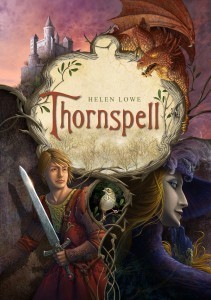 On July 24 I talked about "being in the lull", that happy time when you have passed one book deadline and the next one is not immediately looming, and you can take a few deep breaths and play catch up with the rest of your life. And then, if you're really lucky, you get a bit of a holiday and then what happens is you start to get itchy fingers—you begin thinking about the next book, and other books that could happen after that, as well as shorter stories that could evolve out of the worlds and characters you have already created.
On July 24 I talked about "being in the lull", that happy time when you have passed one book deadline and the next one is not immediately looming, and you can take a few deep breaths and play catch up with the rest of your life. And then, if you're really lucky, you get a bit of a holiday and then what happens is you start to get itchy fingers—you begin thinking about the next book, and other books that could happen after that, as well as shorter stories that could evolve out of the worlds and characters you have already created.
Needless to say, as I put my authorial feet up on the metaphorical porch rail and chill out between completing The Gathering of the Lost, The Wall of Night Book Two on 1 July and wait for the copyedit to arrive in the next week or so, that is exactly what I have been doing. Obviously I have been thinking a lot about launching into Daughter of Blood, The Wall of Night Book Three—but I have also found myself thinking about the Thornspell story. A couple of ideas for potential spinoffs to the main novel have come bubbling up (& I love how that happens when you have that precious "suppin' whisky on the metaphorical porch" time) but I've also been thinking how cool it would be to have some short story fun with the characters right here on the blog.
And then I got to thinking that it would be even more fun if you were to tell me the Thornspell character you would most like to have a standalone short story written for, or about—and why, based on that character's exploits in the Thornspell story.
So here's the deal:
Obviously you can comment 'right now-today-at once' to tell me the Thornspell character that you like best and why, and consequently would love a spinoff short story about—and I hope you will do just that!
But I'll also be keeping the opportunity going over the next month through until September 4, with a Fun with Thornspell feature every Thursday (in which I'll be exploring some aspect of the book that's important to me as the author.)
At the end of that time, I will ask three judges of high repute (to be named in a subsequent post) to decide on the very best "why" put forward—and I will then write a story for that character and post it right here on the blog, with a personal dedication to the nominator!
And who knows—if there is enough interest there may be more than one story … (Did I not say that my fingers have been twitching?)
But wait, there's more …
One thing I'm always mindful of is that Thornspell is a story written for kids (as well as the perenially young at heart
 ) so any of the commenters who are 1) pupils at either primary/intermediate/secondary school; and ii) enter the name of their school in their comment, will go into a draw to win a copy of Thornspell for their school library—and I have 3 hardcover copies to give away.
) so any of the commenters who are 1) pupils at either primary/intermediate/secondary school; and ii) enter the name of their school in their comment, will go into a draw to win a copy of Thornspell for their school library—and I have 3 hardcover copies to give away.So there it is, "Fun With Thornspell" right here on Anything, Really. You might also like to check out the Thornspell website, where each of the images on the site has a piece of sample text embedded … 
August 2, 2011
Guest Post & Giveaway on the Supernatural Underground
I've currently got my regular 1st of every month guest post and giveaway up on the Supernatural Underground, talking about my Hugo's reading and the thoughts it generated on diversity in speculative fiction—and asking how you keep up with new trends in the genre. You can check it out here and post a comment before the next Supe author blogs to be in to win a copy of either Charlaine Harris' latest, Dead Reckoning, or Nalini Singh's Archangel's Consort.
The 2011 World Fantasy Award Finalists
Tis definitely the season for the award, for no sooner have I finished my reading for the Hugo Awards than the finalists for the 2011 World Fantasy Awards are announced! This is another reader/fan voted award and yes, once again I am eligible to vote having taken out a non-attending membership to the convention. In fact I would have loved to attend, but sadly, a journey of 10,000 miles and my own writing commitments ruled it out for this year. But next year, maybe, in Canada … Who knows?
But enough of that—who's on the list? I've included the full list of categories and finalists—by author's/artist's surname—below and you will see there are a few overlaps with the Hugo Award finalists' list. I have indicated these by use of blue font just to make them a bit easier to pick out.
BEST NOVEL
Zoo City, Lauren Beukes (Jacana South Africa; Angry Robot)
The Hundred Thousand Kingdoms, N.K. Jemisin (Orbit)
The Silent Land, Graham Joyce (Gollancz; Doubleday)
Under Heaven, Guy Gavriel Kay (Viking Canada; Roc; Harper Voyager UK)
Redemption In Indigo, Karen Lord (Small Beer)
Who Fears Death, Nnedi Okorafor (DAW)
BEST NOVELLA
Bone and Jewel Creatures, Elizabeth Bear (Subterranean)
The Broken Man, Michael Byers (PS)
"The Maiden Flight of McCauley's Bellerophon", Elizabeth Hand (Stories: All-New Tales)
The Thief of Broken Toys , Tim Lebbon (ChiZine)
"The Mystery Knight", George R.R. Martin (Warriors)
"The Lady Who Plucked Red Flowers beneath the Queen's Window", Rachel Swirsky (Subterranean Summer 2010)
BEST SHORT FICTION
"Beautiful Men" , Christopher Fowler (Visitants: Stories of Fallen Angels and Heavenly Hosts)
"Booth's Ghost", Karen Joy Fowler (What I Didn't See and Other Stories)
"Ponies", Kij Johnson (Tor.com 11/17/10)
"Fossil-Figures", Joyce Carol Oates (Stories: All-New Tales)
"Tu Sufrimiento Shall Protect Us", Mercurio D. Rivera (Black Static 8-9/10)
BEST ANTHOLOGY
The Way of the Wizard, John Joseph Adams, ed. (Prime)
My Mother She Killed Me, My Father He Ate Me, Kate Bernheimer, ed. (Penguin)
Haunted Legends, Ellen Datlow & Nick Mamatas, eds. (Tor)
Stories: All-New Tales, Neil Gaiman & Al Sarrantonio, eds. (Morrow; Headline Review)
Black Wings: New Tales of Lovecraftian Horror, S.T. Joshi, ed. (PS)
Swords & Dark Magic, Jonathan Strahan & Lou Anders, eds. (Eos)
BEST COLLECTION
What I Didn't See and Other Stories, Karen Joy Fowler (Small Beer)
The Ammonite Violin & Others, Caitlín R. Kiernan (Subterranean)
Holiday, M. Rickert (Golden Gryphon)
Sourdough and Other Stories, Angela Slatter (Tartarus)
The Third Bear, Jeff VanderMeer (Tachyon)
BEST ARTIST
Vincent Chong
Kinuko Y. Craft
Richard A. Kirk
John Picacio
Shaun Tan
SPECIAL AWARD, PROFESSIONAL
John Joseph Adams, for editing and anthologies
Lou Anders, for editing at Pyr
Marc Gascoigne, for Angry Robot
Stéphane Marsan & Alain Névant, for Bragelonne
Brett Alexander Savory & Sandra Kasturi, for ChiZine
SPECIAL AWARD, NON-PROFESSIONAL
Stephen Jones, Michael Marshall Smith, & Amanda Foubister, for Brighton Shock!: The Souvenir Book Of The World Horror Convention 2010
Alisa Krasnostein, for Twelfth Planet Press
Matthew Kressel, for Sybil's Garage and Senses Five Press
Charles Tan, for Bibliophile Stalker
Lavie Tidhar, for The World SF Blog
Winners will be announced at this year's World Fantasy Convention, to be held October 27-30, in San Diego CA.
August 1, 2011
Tuesday Poem: The Sparrows
I meant it to be a poem about sparrows
and how the silence that followed
the February 22nd earthquake
included their absent voices —
& not just sparrows but the starlings
and blackbirds, the finches and wax-eyes
that normally fill the day with their bustle
about the business of living …
……………………………. all fallen silent,
hidden away, or gone further to find food
since half the city was covered
in a slick of water and mud. I threw
old bread onto the island of grass
in our own grey sea and waited …
…………………………..… and waited.
And then, finally, they came
their wings clouding the sun.
.
.
© Helen Lowe, 2011
—
To read the featured poem on the Tuesday Poem Hub and other great poems from fellow Tuesday poets from around the world, click here or on the Quill icon in the sidebar.
July 31, 2011
Reading for the Hugo Awards: The Ballot Is In
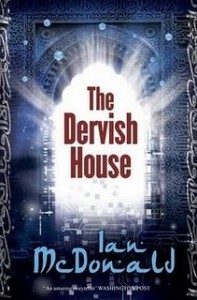 Yesterday, Sunday 31 July was the final day for voting in the Hugo Awards—and in fact in the US the ballot is probably still open as Eastern Standard Time is 16 hours behind NZ time at present. But nonetheless, as far as my ballot is concerned, the die is cast: I completed it on Sunday 31, NZ time.
Yesterday, Sunday 31 July was the final day for voting in the Hugo Awards—and in fact in the US the ballot is probably still open as Eastern Standard Time is 16 hours behind NZ time at present. But nonetheless, as far as my ballot is concerned, the die is cast: I completed it on Sunday 31, NZ time.
In the end I did manage to read all the fiction finalists, although I had my doubts as to whether I would 'get there' on July 1 when I was facing six novels, five novellas and novelettes, and four short stories—that's a grand total of twenty works of fiction, three less than last year. But still, a not inconsiderable task when you have just a month to read and form an opinion on them all.
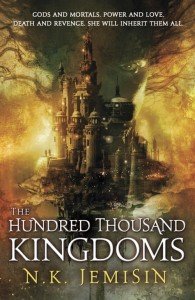 And I do feel that it is very important to read them all if I am going to vote, so that I am giving every finalist a fair go. I consider that this is particularly important as the Hugo Award selection process is both reader/fan-based and is also considered to be one of the pre-eminent awards for speculative fiction in the world. So I believe it is important to read every finalist with as open a mind as possible to determine—by my lights—which of the final works in each category merits that accolade.
And I do feel that it is very important to read them all if I am going to vote, so that I am giving every finalist a fair go. I consider that this is particularly important as the Hugo Award selection process is both reader/fan-based and is also considered to be one of the pre-eminent awards for speculative fiction in the world. So I believe it is important to read every finalist with as open a mind as possible to determine—by my lights—which of the final works in each category merits that accolade.
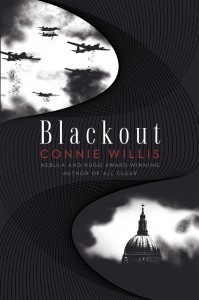
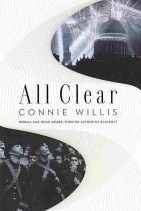 The second step, following reading the works, is always to evaluate and then rank them, quite often making fine distinctions between a number of very good stories. So although the first step in evaluation may be to say, "do I like this story?" the last question is quite likely to be: "which story do I like the most?" A tough call, but also a very subjective one—and very individual.
The second step, following reading the works, is always to evaluate and then rank them, quite often making fine distinctions between a number of very good stories. So although the first step in evaluation may be to say, "do I like this story?" the last question is quite likely to be: "which story do I like the most?" A tough call, but also a very subjective one—and very individual.
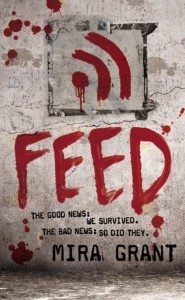 That is why, when doing my reports here one each of the five finalists for Best Novel—remembering that one of those finalists actually comprised two novels, Blackout and All Clear—I was careful to set out my evalation criteria before I started, so I could be consistent in my approach to each work. I used the same criteria in relation to the other fiction categories as well, and just to remind you, these 'rules of thumb' I followed throughout were:
That is why, when doing my reports here one each of the five finalists for Best Novel—remembering that one of those finalists actually comprised two novels, Blackout and All Clear—I was careful to set out my evalation criteria before I started, so I could be consistent in my approach to each work. I used the same criteria in relation to the other fiction categories as well, and just to remind you, these 'rules of thumb' I followed throughout were:
the use of genre elements in the work, i.e. its strength as a work of speculative fiction;
whether the book works for me as a story, i.e. is it compelling, well written and engaging, with particular regard to the emotional depth to the story telling and interesting ideas (although not necessarily for their own sake.) Consistency of both characters and plot is really important to me. And I do rate good use of humour in the story.
I also appreciate a good 'twist in the tale', although I don't actively require it to enjoy a book—good characters and a good tale well told are my baseline.
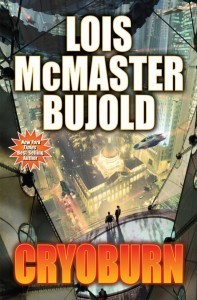 In going to the final step of ranking the finalists on the ballot paper (the Hugo Awards use a transferable voting system), I also came back to a comment I made in relation to the book report on Cryoburn: that this is meant to be an award for the very best speculative fiction novel (or short story, novelette, or novella) published in the world in 2010. To me, that means I must be putting my "1″ against the novel that for me is the strongest combination of excellence in the use of speculative elements and simply being a compelling read.
In going to the final step of ranking the finalists on the ballot paper (the Hugo Awards use a transferable voting system), I also came back to a comment I made in relation to the book report on Cryoburn: that this is meant to be an award for the very best speculative fiction novel (or short story, novelette, or novella) published in the world in 2010. To me, that means I must be putting my "1″ against the novel that for me is the strongest combination of excellence in the use of speculative elements and simply being a compelling read.
When I thought about it in those terms, the ranking of the novels—which is the category I spent most time and attention on here on the blog—on the ballot paper fell into place fairly quickly. Something that I hope comes through in the reports (which I will list in full at the end) is that I liked all the books. But I felt some were definitely stronger in terms of their use of the speculative genre, while with others I had more quibbles around how the book worked for me in terms of the storytelling. I am not going to give you my complete listing, but (as also happened last year with China Mieville's The City & The City and Paolo Bacigalupi's The Windup Girl), the final decision around the No. 1 spot on my ballot paper came down to two books: Ian McDonald's The Dervish House and NK Jemisin's The Hundred Thousand Kingdoms.
This is the point at which it all gets really tough—and basically comes down to the sort of story and SFF one enjoys the most, ie personal preference. I enjoyed both The Dervish House and The Hundred Thousand Kingdoms but in the end McDonald's mix of nanopunk scifi and magic realism spoke to me more deeply as a reader—and I really loved his characters.
So there it is: my ballot had been cast and now all that remains is to see whether I am in or out of synch with the majority of my fellow SFF readers and Hugo voters. The awards will be announced Saturday, August 20th, 2011, during the Hugo Awards Ceremony at Renovation, this years World Science Fiction Convention in Reno, to be held over Wednesday 17—Sunday 21 August. So not many sleeps now to find out that final result!
—
The full list of my reports on my reading of the Hugo Award finalists for Best Novel is as follows:
Blackout/All Clear by Connie Willis (Ballantine Spectra; Allen & Unwin here in AU/NZ) — my report is posted here .
Cryoburn by Lois McMaster Bujold (Baen) – you can read my report here
The Dervish House by Ian McDonald (Gollancz; Pyr) – again, you can read my report here
Feed by Mira Grant (Orbit) – my report is here
The Hundred Thousand Kingdoms by N.K. Jemisin (Orbit) – my report is here
July 30, 2011
Just Arrived!
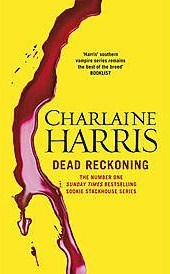 Books are arriving thick and fast at present and the current "just arrived" on my book table is Charlaine Harris' Dead Reckoning, the latest in her Sookie Stackhouse series—more paranormal fun with Sookie, Eric, Bill, and the rest of the living, dead, and shapeshifting community of Bon Temps. Here's the back cover blurb:
Books are arriving thick and fast at present and the current "just arrived" on my book table is Charlaine Harris' Dead Reckoning, the latest in her Sookie Stackhouse series—more paranormal fun with Sookie, Eric, Bill, and the rest of the living, dead, and shapeshifting community of Bon Temps. Here's the back cover blurb:
"There's a reckoning on the way … and Sookie has a knack for being in trouble's way, not least when she witnesses the firebombing of Merlotte's, the bar where she works. Since Sam Merlotte is known to be two-natured, suspicion immediately falls on the anti-shifters in the area. Sookie suspects otherwise, but before she can investigate something else — something even more dangerous — comes up.
Sookie's lover Eric Northman and his 'child' Pam are plotting something in secret. Whatever it is, they seem determined to keep Sookie out of it, almost as determined as Sookie is to find out what's going on. She can't sit on the sidelines when both her work and her love life under threat — but as she's gradually drawn into their plans Sookie finds the situation is deadlier than she could ever have imagined."
So what's new on your book table? Or is there a book that you're hoping to read soon but haven't got to yet?
July 29, 2011
Hugo Awards Reading Report 5: The Novels—"Blackout" and "All Clear" by Connie Willis
 The Hugo Award reading process has been fast-paced and pressured, with six major novels to be gotten through between 1 July, when I finished work on The Gathering of the Lost The Wall of Night Book Two, and tomorrow, 31 July, when the voting closes. But here it is, squeaking in under the wire, my final report back on Connie Willis' Blackout and All Clear, which as one story published in two parts comprises two books being considered as one for the purposes of the award.
The Hugo Award reading process has been fast-paced and pressured, with six major novels to be gotten through between 1 July, when I finished work on The Gathering of the Lost The Wall of Night Book Two, and tomorrow, 31 July, when the voting closes. But here it is, squeaking in under the wire, my final report back on Connie Willis' Blackout and All Clear, which as one story published in two parts comprises two books being considered as one for the purposes of the award.
Those of you who have been following these reports will be familiar with my evaluation criteria by now. But for others coming new to it all I have set the criteria out in full at the end of the post (below the complete list of finalists for the award.) Any specific considerations that come up for me in relation to a specific work I mention within the body of the report.
 Blackout and All Clear by Connie Willis.
Blackout and All Clear by Connie Willis.The Basic Story:
In Blackout/All Clear, Connie Willis has returned to the world of her award-winning novel, Domesday Book, in which historians based in Oxford are able to use time travel to observe past events at first hand. In this case the three central protagonists, Polly, Mike, and Eileen (Merope), time travel back to World War 2 to observe events around Dunkirk and the London Blitz first hand. But "slippage", the feature of time travel that is supposed to help prevent history from being changed by the intrusion of observers from the future, is growing worse and then Polly, Mike and Eileen's drop points refuse to reopen, stranding them in the horror of the Blitz. As events unfold, they begin to suspect the worst, which is that the slippage and stranding may have happened, not to prevent them from changing the past but because their actions have already changed it—that they may in fact have caused the war to be lost.
Meanwhile, back in Oxford, two of the characters we first met in Domesday Book, Mr Dunworthy and Colin Templar, who is in love with Polly, are desperately trying to get the drops to re-open and pull the three trapped historians out of the past.
The Report:
The summary above is the speculative plotline of Blackout/All Clear, but when all is said and done, this story is really about the two phases of the Blitz, the bombing raids of 1940-41 and the "doodlebug" rocket attacks of 1944—a "praise song", as it were, to the courage and fortitude of the Londoners who not only survived those terrible events, but kept going and fought back and won the war. So Blackout/All Clear is as much an historical novel as it is a speculative fiction one.
Overall, I believe it is probably a stronger historical than speculative fiction work, simply because the SFF element—ie whether time travel has actually caused the Allies to lose the war, and will the time travel drops re-open in time to save Mike, Polly, and Eileen?—is actually quite slight for the approximately 1200-page length of the two novels. For me, this was really more the background of the novel, something that worried and drove the three central protagonists but did not greatly concern me as a reader.
This is because, as a reader, I "knew" that somehow or other the course of history had to work out (ie from the beginning, I never had the sense that this was going to turn into a true "alternate history" novel.) This sense was reinforced by the use of the character of Colin Templar from the earlier novel, Domesday Book, as the young man driven to find Polly. I already knew from the earlier work that Colin was creative and resourceful and therefore likely to succeed. You also may recall from my first report on The Hundred Thousand Kingdoms that I claimed to be rarely surprised by the twists and turns in stories. In this case I can fairly say that I was able to predict the reason for slippage and the closure of the drops (which is the resolution of the story for the central characters) from a fairly early stage. So from a speculative point of view, I felt that the story was actually quite "slight."
The strength of Blackout/All Clear lies in the convincing depiction of the historical period and the depth of the characters. Polly, Eileen and Mike were all engaging personalities that I cared about emotionally—although that emotional engagement might have been more profound if I had felt more uncertainty about the final resolution of the story. And then there were the Hodbin children, Alf and Binnie, whose paths kept intersecting Eileen's, and through her those of the other time travellers. These were no cute, engaging kids but quite the opposite: they were utterly convincing little horrors–and for me, the the two most compelling characters in the book, not just because they were so real but because as genuine citizens of World War 2, their future was less certain than that of the three central characters.
As I said at the beginning, this was really a story, not so much about time travel and the three central characters, but about the Blitz and the war and the courage and fortitude of the Londoners who endured that time—and by so doing bought us the future that we enjoy today. It contains a wealth of detail of the events and the people that lived through them: air raid wardens, rescue workers, ambulance drivers, doctors and nurses, shop girls, school children, civilians—but every one of them making a difference. The three time travellers were interesting and sympathetic, but mainly as a lens onto the WW2 events and people amongst whom they moved in the story. And for me, it is the "praise song" element that gave Blackout/All Clear its life and power, and which kept me engrossed in the 1200-odd page read—not the speculative storyline or character studies (the Hodbins aside.)
And in case of doubt, as an avid reader of both historical fiction and non-fiction, this book did hold my attention throughout.
—
To reiterate, the complete list of finalists for the Hugo Award for Best Novel, by book title, comprises:
Blackout/All Clear by Connie Willis (Ballantine Spectra; Allen & Unwin here in AU/NZ)
Cryoburn by Lois McMaster Bujold (Baen) – you can read my report here
The Dervish House by Ian McDonald (Gollancz; Pyr) – again, you can read my report here
Feed by Mira Grant (Orbit) – my report is here
The Hundred Thousand Kingdoms by N.K. Jemisin (Orbit) – my report is here
The evaluation criteria I have been using for all the Best Novel finalists are as follows:
– the use of genre elements in the work, i.e. its strength as a work of speculative fiction;
– whether the book works for me as a story, i.e. is it compelling, well written and engaging, with particular regard to the emotional depth to the story telling and interesting ideas (although not necessarily for their own sake.) Consistency of both characters and plot is really important to me. And I do rate good use of humour in the story.
– It has also emerged through my previous reports that I appreciate a good 'twist in the tale', although I don't actively require it to enjoy a book—good characters and a good tale well told are my baseline.
The Next Step:
And now, having read and reported back on all six novels on the shortlist for the Hugo Award for Best Novel, I am faced with the difficult and daunting task of deciding how to order them on my ballot. I'll be doing that tomorrow and reporting back on how the process went—but only after the voting has closed!
In the meantime, what do you think—how do you think I might vote having read my reports on each and all of the books? And if you've read any or all of them yourself, how did you feel about the story/stories?

